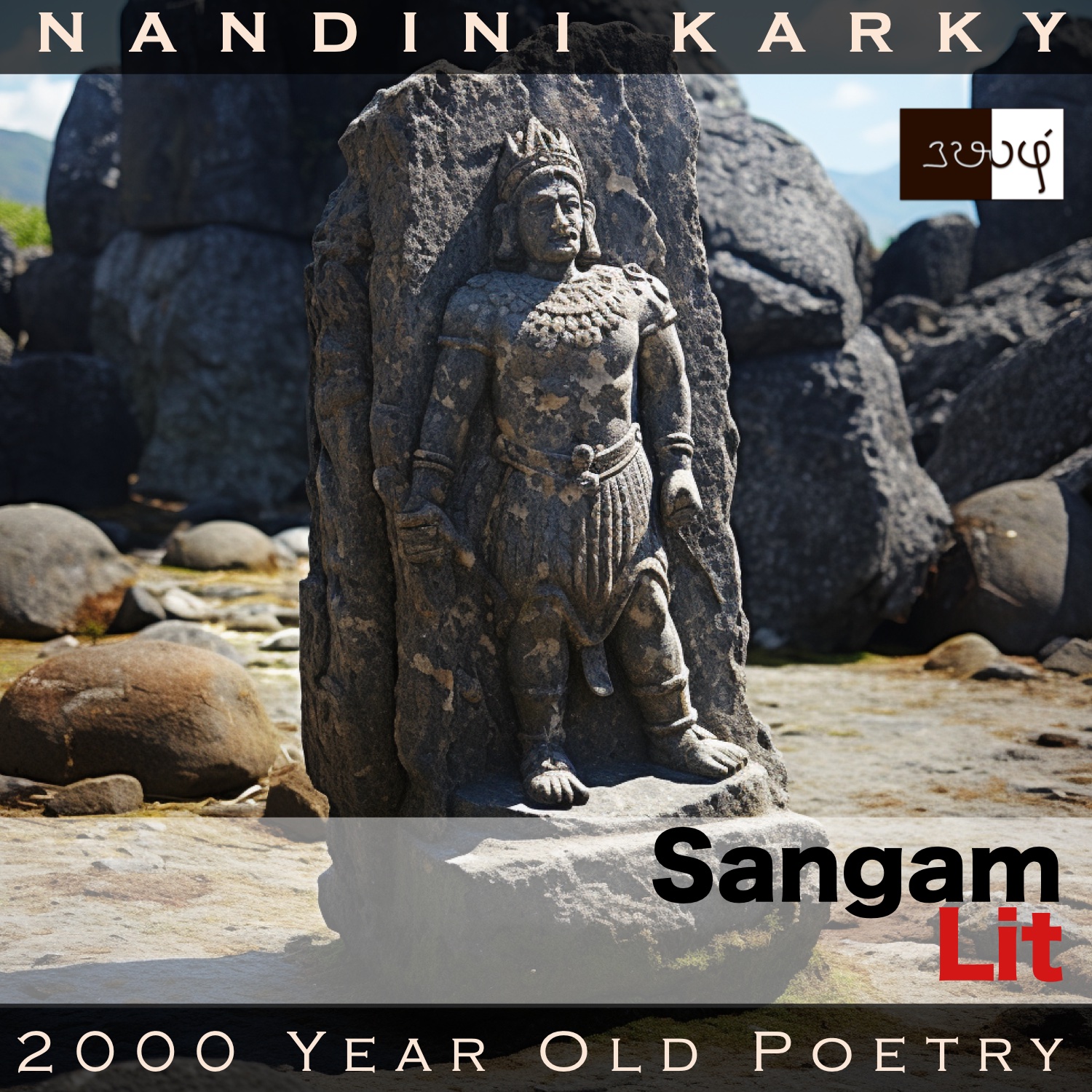Podcast: Play in new window | Download
Subscribe: Apple Podcasts | Spotify | Amazon Music | Android | iHeartRadio | TuneIn | RSS | More
In this episode, we hear about the praiseworthy attributes of a king, as portrayed in Sangam Literary work, Puranaanooru 221, penned about the Chozha king Koperunchozhan by the poet Poththiyaar. Set in the category of ‘Pothuviyal Thinai’ or ‘Common Themes’, the verse echoes the deep sorrow of those who witnessed this king’s demise.

பாடுநர்க்கு ஈத்த பல் புகழன்னே;
ஆடுநர்க்கு ஈத்த பேர் அன்பினனே;
அறவோர் புகழ்ந்த ஆய் கோலன்னே;
திறவோர் புகழ்ந்த திண் அன்பினனே;
மகளிர் சாயல்; மைந்தர்க்கு மைந்து;
துகள் அறு கேள்வி உயர்ந்தோர் புக்கில்;
அனையன் என்னாது, அத் தக்கோனை,
நினையாக் கூற்றம் இன் உயிர் உய்த்தன்று;
பைதல் ஒக்கல் தழீஇ, அதனை
வைகம் வம்மோ வாய்மொழிப் புலவீர்!
‘நனந் தலை உலகம் அரந்தை தூங்க,
கெடு இல் நல் இசை சூடி,
நடுகல் ஆயினன் புரவலன்’ எனவே.
Poet Poththiyaar returns to King Koperunchozhan after his visit to the capital and finds that the king has parted away. He renders these words just then:
“He has the fame of rendering unto singers; His great love made him generous to dancers; He held a brilliant sceptre, praised by the just; His deep affection was praised by the wise; He was gentle with maiden and formidable to the strong; He was the refuge of the great, who possessed faultless knowledge; Not considering he’s such a person, thoughtlessly Death has taken the good life of the worthy king; Embracing our suffering kin, let’s berate it, O honest poets, with the words, ‘Making the wide-spread world suffer in sorrow, crowned with impeccable, great fame, the generous patron has now become a hero stone’.”
Let’s delve into the emotions herein. The poet talks about the greatness of the king by listing out how he was generous to singers and dancers, how his rule was praised for its justness, how he was celebrated for his affection, how he could gentle with women and tough with the strong, and most of all, how he protected knowledgeable people who came to him. So good was he, but Death did not hesitate for a single moment and simply took away his life, the poet continues. And so, we must all join together with our grieving families and scold Death asking it, ‘How could you take away this faultless soul?’, the poet adds and concludes with the words that making all the world suffer in sorrow, the famous one had now turned into a hero stone.
The understandable emotion here is that of wanting to curse Death when a beloved is taken away. What love and respect the king should have commanded to make those who were not his kith and kin feel so much suffering when he parted away! Turning to the mention of the word ‘Nadukal’ or ‘hero stone’, this was an ancient custom of the Tamils to plant a memorial stone with an image of the hero, who had fought for or done a great sacrifice for his village or region. I read that in a place called ‘Pulimaankombai’, a hero stone dating back to 400 BCE, the oldest in India, has been discovered, engraved in ancient Tamizhi script. And, this verse marks one of those precious moments when literature and archaeology shake hands and affirm the antiquity of a thought and a people!




Share your thoughts...